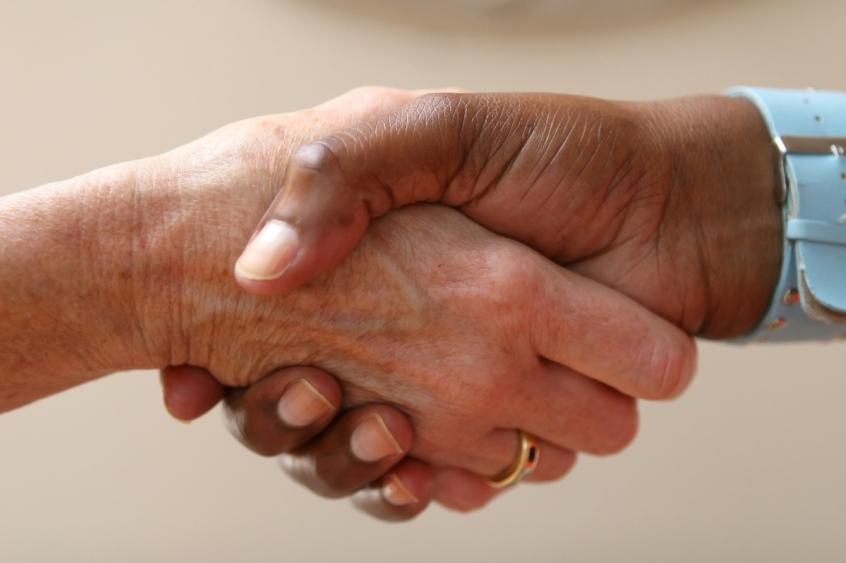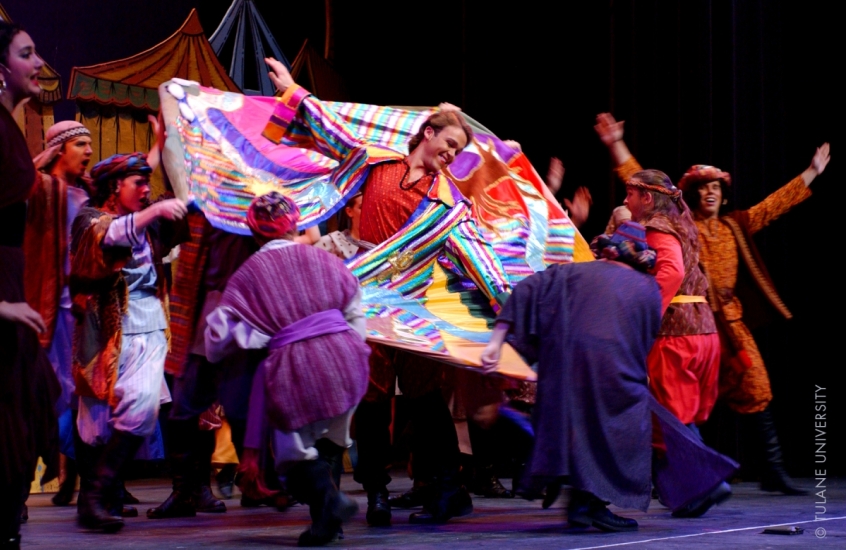During the 8-day period of Chanukah, which Jesus celebrated, and which is often around Christmas and New Year, the Jewish community reads the Joseph stories in synagogue.
The Book of Genesis ends in Egypt with Jacob's death-bed blessings over his 12 sons, and his final request that they ask Pharaoh to allow him to be buried in the Cave of Machpelah, in Hebron, which his grandfather, Abraham, had purchased.

But Joseph had been specially favoured by his father, who knew of his destiny as political guide and ruler to kings, and the other brothers were jealous. First, there was the special mantle of office, which Jacob had given Joseph as a child, arousing the ire of his siblings. Then there were the dreams of superiority. So they threw him in a pit, lied to their father, and secretly sold him.
Joseph ends up as servant to Potiphar, in the court of Pharaoh. He withstands the seductions of Potiphar's wife, who falsely accuses him of assault, and he ends up in prison.
There, he correctly interprets two dreams and finds himself back in favour. Then he interprets Pharaoh's dream of 7 lean cows consuming 7 fat cows as years of plenty being succeeded by years of starvation.
He therefore devises a long-term economic plan which includes higher taxation from 10 per cent to 20 per cent and the prevention of 'fat-cat' syndrome. Sometimes, like all economists, Joseph makes mistakes, but his main contribution is to conquer the idea of fatalism in history. With careful planning, famines and long-term debt simply don't have to happen and it is up to people (not the 'gods') to do something about it.
In the Jacob and Esau stories, we saw that the brothers were not reconciled. Why was Esau unable to forgive Jacob and why was Jacob unable to forgive Esau? Jacob did not acknowledge or make amends for his deceitful behaviour towards Esau. He therefore placated him, appeased him, flattered him, bribed him with gifts, and avoided the real issue. Esau, the more powerful of the two, pretended not to mind, but secretly harboured a grudge. The famous 'kiss of peace' was in reality no such thing, according to Jewish tradition, but simply an outward show of reconciliation which was not internalised by either side.
Joseph's case is different. He now accepts that his boastful childhood behaviour had appeared as a threat to his brothers. He also acknowledges that, through Divine providence, their cruel behaviour towards him has led to his destined role as political leader. He has saved his own people from famine and, in addition, helped his temporary country of residence – Egypt – to flourish.
But most important, Joseph notes that during their long years of separation his brothers had changed. They are truly repentant of their earlier behaviour towards them, and have also demonstrated bravery in adversity.

So from a position of strength, Joseph is able to forgive. Joseph has grown through his experience. He is able to comfort and console his brothers. He is now in control and is able to give them back their self-respect. Joseph halts the cycle of revenge. This is not only good for family relations, but essential to the well-being of the 12 tribes as they start to prepare for their eventual Exodus from Egypt, hopefully leaving all ill-feeling behind as they prepare for the challenges ahead.
In the original Hebrew, the word for forgiveness is nasa. This means to carry a load. What Joseph does in this first act of forgiveness in history is to lift the load from the backs of his brothers and carry it for them. In so doing, he himself 'rises above' his former self and his former relationships and becomes a new kind of person.
It is interesting to note that these stories are read at a time of year when the world is celebrating the birth of a Jewish baby who on January 1<sup>st is circumcised according to Jewish law. Later on in life, Jesus celebrates Chanukah, the Feast of the Dedication. Christmas is a festival which appears much later in history.
In the bleak midwinter Jews around the world light 8 Chanukah candles, one more for each day and prepare – as Joseph did in Egypt – to store things up, both physically and mentally, for the journey ahead. For it is in the bleak midwinter that the preparations for the Exodus from Egypt to the Promised Land of Israel are made.
And the key element in all of this is the possibility of forgiveness and renewal, of new relationships and understanding. It is through the invention of forgiveness that the 12 unwieldy brothers become the Jewish people, otherwise known as the children of Israel, going forth to live out their destiny as a 'light unto the nations' for whom second chances have now become second nature.
Dr Irene Lancaster is a Jewish academic, author and translator who has established university courses on Jewish history, Jewish studies and the Hebrew Bible.













